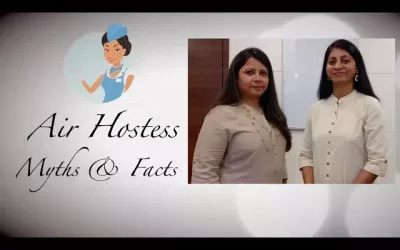What is Travel & Tourism?
When Can I Enroll for Travel & Tourism?
| COURSE | ELIGIBILITY | DURATION | ENTRANCE EXAM |
| Certificate or Diploma in Tourism / | SSC / HSC | 1-2 Yrs. | No Exam |
| Bachelor in Hotel Management and Tourism Studies / B.Sc. International Hospitality and Tourism Management/ Bachelor in Tourism Administration | HSC [any stream] | 3 Yrs. | CET/Autonomous Exam |
Master in Tourism Administration (MTA)/ MBA (Travel & Tourism)/ M.A. in Tourism Management/ P.G. Diploma in Tourism Management (PGDTM)/ P.G. Diploma in Tourism (PGDT) /P.G. Diploma in Travel and Tourism Industry Management (PGDTTIM) /PG Diploma in Airlines/ PG Diploma in Cargo operation and Management | Graduate [any stream] / B.Sc. [Hospitality] | 1-2 Yrs. | Autonomous Exam |
NOTE:
- IATA: International Air Transport Association, URL: www.iata.org
- UFTAA: United Federation of Travel Agents’ Associations, URL: www.uftaa.org
- FIATA: International Federation of Freight Forwarders Associations, URL-www.fiata.org
What Personality Traits Are Required in the Field of Travel and Tourism?
- Love for Traveling
- Outgoing, Friendly Personality
- Communication & Presentation Skills
- Proficiency in One or More Language
- Ability to Handle People
- Organizing Ability
- Quick Decisions Making Ability
- Dynamic Personality
- Working Efficiency
What Aptitude Is Required in the Field of Travel and Tourism
- Average Verbal Reasoning
- Average Abstract Reasoning
IQ Required in the Field of Travel and Tourism?
Job Prospects in the Field of Travel and Tourism
- Educational Institutes
- Government Tourism Departments
- Airlines (National and International)
- Holiday Consultant
- Tour Operators
- Transport and Cargo Companies
- Travel Agencies/tv Channels/writers
- Theme Park/ Amusement Park
- Hotels
- Self Employment
Frequently Asked Questions for Travel & Tourism
1. What is travel and tourism, and why is it important?
Travel and tourism refer to the activities of people traveling to different destinations for leisure, business, or other purposes. It is essential for cultural exchange, economic growth, and personal relaxation and exploration.
2. What are some popular travel destinations around the world?
Popular travel destinations vary depending on individual preferences, but some globally renowned destinations include Paris, Rome, Tokyo, New York City, Bali, and the Maldives, among many others.
3. How can I plan a trip effectively?
Effective trip planning involves setting a budget, choosing a destination, booking accommodations, transportation, and activities, and considering factors like travel insurance, visas, and local customs.
4. What are the benefits of using a travel agency or tour operator?
Travel agencies and tour operators can help simplify the travel planning process by offering pre-packaged tours, expert advice, and booking services. They can also provide access to exclusive deals and experiences.
5. How can I find the best deals on flights and accommodations?
To find the best deals, compare prices on multiple travel websites and use fare comparison tools. Flexibility with travel dates and booking in advance can also lead to cost savings.
6. What is sustainable or eco-friendly travel, and why is it important?
Sustainable travel focuses on minimizing the negative impact of tourism on the environment, local communities, and cultures. It is essential to preserve natural resources and promote responsible tourism practices.
7. How can I stay safe while traveling abroad?
Staying safe while traveling involves researching the destination, understanding local laws and customs, keeping important documents secure, being aware of your surroundings, and taking necessary health precautions, such as vaccinations and travel insurance.
8. What are some travel trends in the industry today?
Current travel trends include eco-tourism, wellness travel, solo travel, adventure tourism, and the rise of digital nomads who work remotely while exploring the world.
9. How can I make the most of my travel experience and immerse myself in local culture?
To immerse yourself in local culture, interact with locals, try traditional cuisine, participate in local activities or festivals, and learn a few basic phrases in the local language. Avoid tourist traps and explore off-the-beaten-path destinations.
10. How has the COVID-19 pandemic affected travel and tourism?
The COVID-19 pandemic has had a significant impact on the travel and tourism industry, leading to travel restrictions, lockdowns, and changes in travel protocols. It has emphasized the importance of health and safety measures and altered travel trends and behaviors. Travelers should stay informed about the latest travel advisories and restrictions when planning trips.






